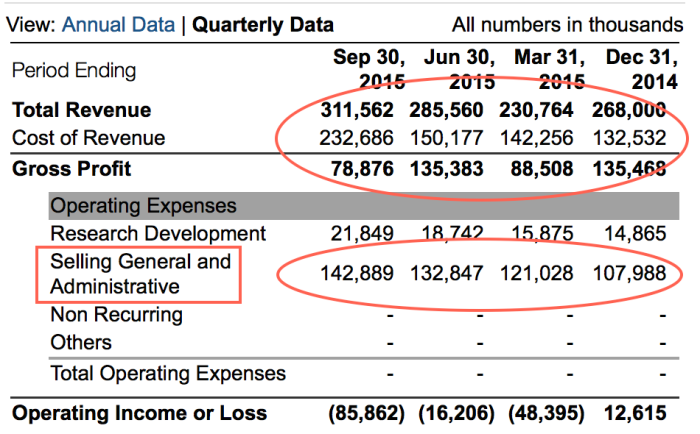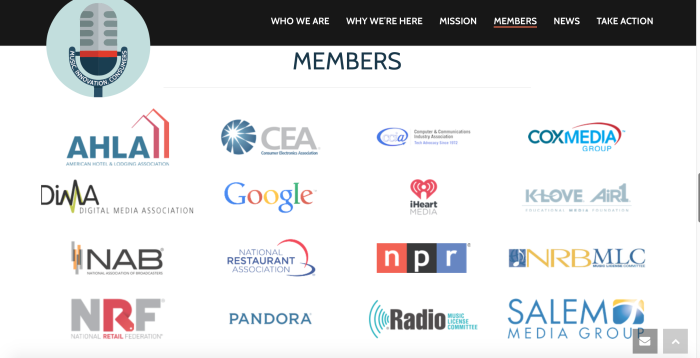What A New Pandora CEO Means For Artists, Labels And Investors
As Tim Westergren returns to the helm of Pandora, has has a great deal of work to do to revitalize the company, and repair its relationship with artists and labels, but also an opportunity to change how the streaming service is perceived in the eyes of the public.
________________________________
Guest Post by Chris Castle on Music Tech Solutions
Tim Westergren has returned to Pandora as the company’s CEO. He’s got a golden opportunity to change how Pandora is viewed–we all want Pandora to succeed, but there’s little support for the path the company has been on for years now. The 42% decline in Pandora’s stock price over the last 12 months hasn’t been helped by the company’s rocky relationship with the vendors of their main product: music.

With some analysts giving Pandora a fair value stock price of $7, here’s a little unsolicited advice.
Overhead: Pandora’s overhead is out of control. They will blame it on royalties, but a closer look shows that the company has a problem with its operating costs that they would like you to ignore (hence the $7 fair value price target).

Integrity: Westergren arrives at Pandora in a much different point in the zeitgeist than when he founded the company in terms of artist relations. He made a huge misstep by associating himself with a string of attempts to lower Pandora’s royalty payment to artists and songwriters all of which have either outright failed or created more hostility than they ever would be worth. In an atmosphere where artists are increasingly suspecting digital music services of cooking the books or operating without licenses, Pandora needs to be doing it better than the next guy. Westergren doesn’t want to get stuck with Pandora’s “Enron moment”.
Legislation: Pandora backed the failed Internet Radio Fairness Act that was designed to lower artist royalties and created a huge backlash from the artist community. Some refer to its spectacular failure as “lobbying malpractice.” One time can be chalked up to bad advice. Don’t make it twice.
Litigation Against Compensating Artists: Pandora became the poster child for refusing to pay royalties on recordings made prior to February 15, 1972 which has come to be known as the “Pandora loophole”. This would mean that if you were to record “Sophisticated Lady” or “Hello Dolly” tomorrow, Pandora would pay you but not the estates of Duke Ellington or Louis Armstrong. In a move reminiscent of Spotify’s settlement with the NMPA, Pandora settled with just the major labels and is continuing to litigate against the class lead by The Turtles. Westergren should settle Pandora’s case and treat all artists fairly. Again, bad advice can get forgiven if the company does the right thing. Avoid having loopholes named after your company on a go forward basis.
Litigation Against Compensating Songwriters: Pandora has lead the way in using the rate courts against songwriters at great expense to ASCAP and BMI. While Pandora is reportedly trying to make direct agreements with publishers, the company is using the rate courts to drag songwriters through the muck. Westergren should stop trying to litigate royalty rates and ask yourself if you really saved that much money compared to your own legal fees and brand damage.
Lobbying With MIC Coalition: Pandora is a member of the MIC Coalition, an alliance of companies against songwriters and artists—companies with a combined market capitalization of over $2 trillion. (I stopped counting at $2 trillion dollars as I get confused by that many zeros to the left of the decimal place like I get confused by zeros to the right of the decimal place on Pandora’s royalty payments.) There’s no good reason for Pandora to be in the MIC Coalition–whose first official act was to file an antitrust complaint against SESAC. That’s right–because Google, Clear Channel (iHeart) and all the rest need protection from songwriters. (The MIC Coalition even had a fake panel at SXSW moderated by their lobbyist who failed to identify her connection to the “McCoalition”.)

Tim Westergren built the better mousetrap, but it’s managed to catch a rat. By pursuing a path of high integrity and fair dealing with creators, Pandora might have a chance to make it. It would be a shame to see it go under. Westergren’s brief should be to do everything he can to get the creative community back on board instead of looking like a stock-rich bubble boy having breakfast at Buck’s.